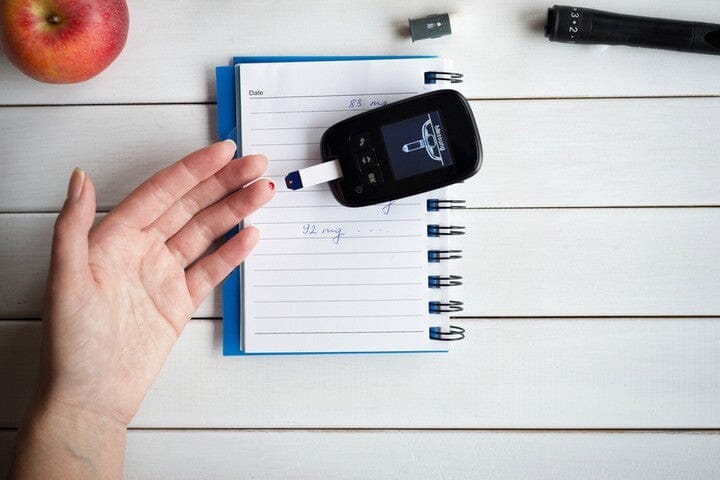Hello! I'm the owner of Fusubon.
This time, I would like to take another look at the fluctuations in blood sugar levels, insulin, and glycation.
As the word diabetes symbolizes, people tend to think that "high blood sugar levels" itself immediately has "adverse effects on the body," but sugar (glucose) itself is in the most stable form in nature, and even in capillaries, which are 5 to 10 micrometers thick and glucose is a few angstroms in size, less than 1/10,000 the size of a capillary.

We often see illustrations of sugar colliding with and damaging the inner walls of blood vessels, but this is merely an image, and sugar does not directly damage the inner walls of blood vessels. We need to think about the indirect effects of sugar.
Two indirect adverse effects of hyperglycemia
There are two main indirect effects of sugar.

① Negative effects of excessive insulin secretion
To explain the process in a little more detail,
Rapid intake of large amounts of sugar → sudden rise in blood sugar level → secretion of large amounts of insulin → full operation of pancreatic beta cells (a type of cell that controls the production and secretion of insulin in the pancreas) → generation of active oxygen → inflammation
It is also known that when a large amount of insulin is released, causing a sudden change from a hyperglycemic state to hypoglycemia, vascular endothelial cells die.
②Continued hyperglycemia causes sugar to bind to proteins, resulting in the production of advanced glycation end products (AGEs).
Let's take a closer look at each one.

① Massive secretion of insulin → Massive production of active oxygen → Inflammation, cell death due to sudden change from hyperglycemia to hypoglycemia
This means that it is not the sugar itself that causes inflammation and cell destruction, but the unpaired electrons of reactive oxygen species due to the full activity of pancreatic beta cells in conjunction with the secretion of insulin.
If you eat too much sugar, a large amount of insulin is secreted. It's fine if the insulin is released in moderation for a moderate amount of sugar, but if you eat a lot of sugar at once and insulin is released in large quantities, it will also secrete a large amount of active oxygen, which is harmful to the body.
Another problem is that continuing to secrete large amounts of insulin puts a strain on the pancreas, which can lead to diabetes and another problem of the pancreas no longer producing insulin.
There are also adverse effects from rapid fluctuations in blood sugar levels.

A normal blood sugar level
B Hyperglycemia
c. Fluctuations between normal and hyperglycemic blood sugar levels
When cell culture experiments were conducted in the above three cases, it was found that cell death was most frequently observed in the case of c. where blood sugar levels fluctuated dramatically.
This also shows the importance of preventing fluctuations in blood sugar levels.
Please see the article below for a summary of the paper.
2) The binding of sugar and protein leads to the production of advanced glycation end products (AGEs).

After reading ①, some people may think that if they develop diabetes, it would be better to do nothing but take insulin or other medication while their blood sugar levels are high.
However, if sugar metabolism is completely impossible, cells such as red blood cells, which are only capable of sugar metabolism, cannot survive, and the negative effects of the binding of proteins and sugar to produce harmful advanced glycation end products (AGEs) cannot be overlooked.
When you have diabetes, the current basic treatment is to physically inject insulin, but when insulin is present, glycogen and neutral fats are synthesized in muscle cells and the liver. This generates a large amount of active oxygen. Active oxygen is also needed to break down excess insulin.
To summarise ① and ②, we can see that the most important thing to do to avoid releasing large amounts of insulin and to avoid a prolonged state of hyperglycemia is to limit carbohydrate intake.
Artificial sweeteners can increase insulin secretion

It has also been shown that while artificial sweeteners do not raise blood sugar levels, they do stimulate insulin secretion.
So, be careful not to consume too many artificial sweeteners.
Fusubon is not only low in carbohydrates and does not cause blood sugar levels to rise or fall, but it also does not contain artificial sweeteners, so there is no need to worry about excessive insulin secretion.
It is safe for people with diabetes or gestational diabetes to consume.
If you are having trouble finding a staple food to eat while restricting carbohydrates, or if you really want to eat a snack, please give this a try!





